Epiphany: Should Christmas decorations come down on 6 January?
- Published
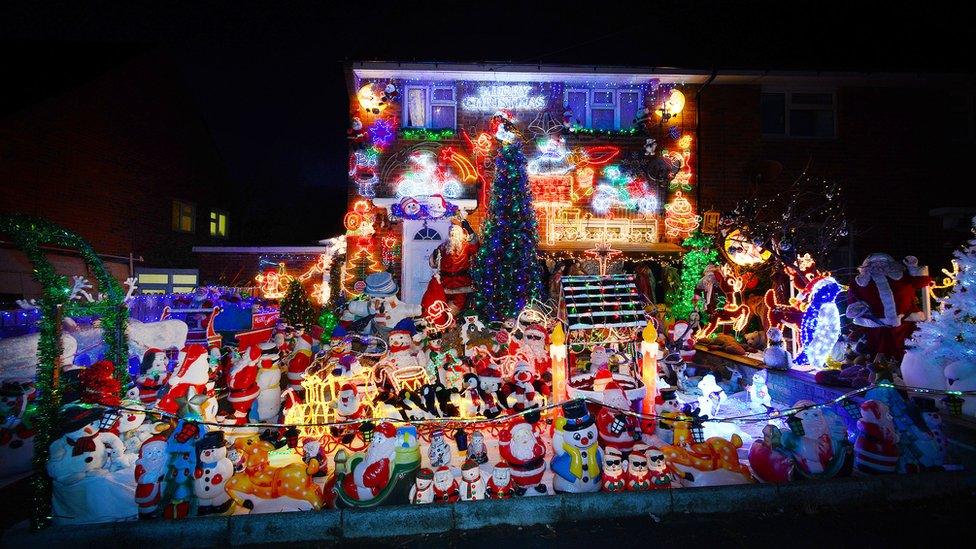
The lights come down for another year, but is there a proper time to dismantle Christmas?
Misfortune apparently befalls anyone who keeps Christmas decorations up a minute after Twelfth Night - but it can fall on 5 January or 6 January, according to different traditions. So what are the rules for taking down the tree and tinsel?
There is no definite date for Twelfth Night, but it marks the beginning of Epiphany on 6 January, the Christian feast day when observers celebrate the visit to Jesus by the Magi - commonly known as the Three kings, or Wise Men.
The hashtag #Epiphany is trending on Twitter as those taking their decorations down for another year share post-holiday blues.
But others believe Twelfth Night marks the end of Christmas, which logically falls on 5 January if the 12 nights are counted from Christmas Day night itself. To add to the confusion, while Anglicans mark Twelfth Night on 5 January, other churches wait until the following day.
How do we celebrate Epiphany?
Epiphany - also known as Three Kings' Day - recalls how the star led the wise men to baby Jesus. The Church of England celebrates the season of Epiphany from 6 January to 2 February.
We are now told the Wise Men could have arrived many weeks later, but 6 January traditionally used to be a day of drinking and parades in Britain.
The 17th Century diarist Samuel Pepys recalls filling his house with friends, "extraordinary Musick" and "good fires and candles" on the day.
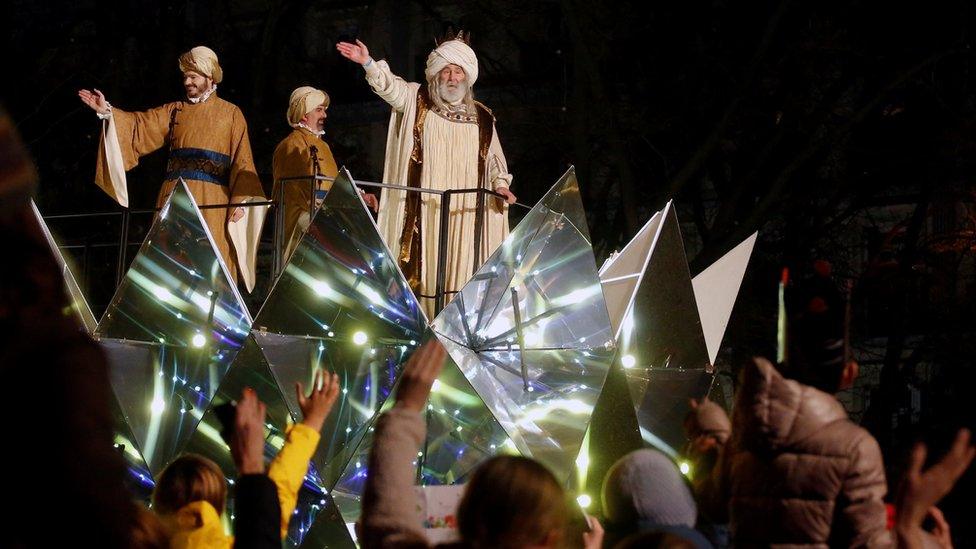
The Three Wise Men wave to crowds gathered in Madrid in Spain to celebrate the feast of Epiphany
"And so to dancing again, and singing, with extraordinary great pleasure, till about two in the morning," he wrote on 6 January 1668.
Another year, he was served 18 mince pies at a friend's Epiphany dinner.
But like today, Pepys held that 6 January marked the final day of celebrations. "This night making an end wholly of Christmas," he wrote on 6 January 1663.
More than 350 years later, many modern Britons would agree with him.
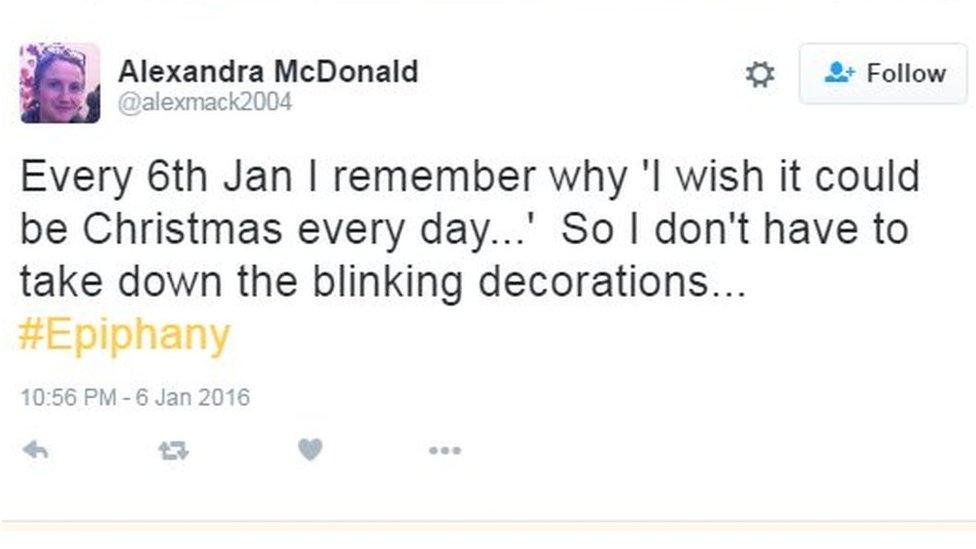
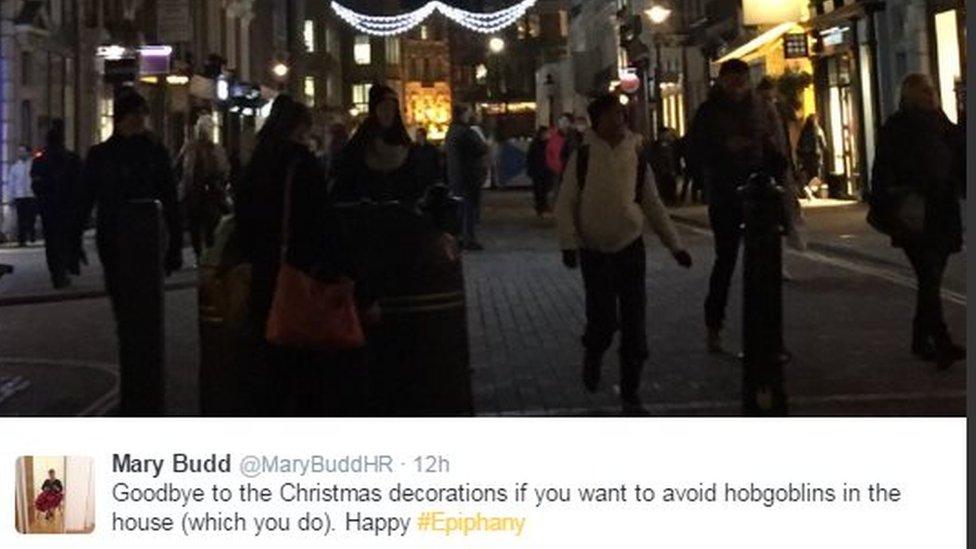

Rev Dr Duncan MacLaren, a regular on BBC Radio 4's Prayer for the Day, explains: "Epiphany remembers the visit of the Magi, who came to Jesus bearing gifts - gold and frankincense and myrrh."
"I wonder what Mary and Joseph thought of this bizarre scene," he says.
Epiphany is also a moment of "sudden realisation", he adds. "It derives from the Greek word, meaning 'to reveal'."
Russians across the country take the plunge
But while Britons rush to take the decorations down on Epiphany, in mainland Europe families are celebrating by taking the day off and exchanging presents.
In Spain and Latin America, "El Día de los Reyes" is just as significant as Christmas. The night before, children leave drinks for the Three Kings and the streets are packed with parades and fireworks displays.
Swimming in icy water is a traditional way for the Russian observers to celebrate Epiphany, which in Eastern Churches falls on 19 January rather than 6 January, due to the older Julian calendar.
When is Twelfth Night?
For others, the coming of Epiphany means the decorations should go down before the clock strikes midnight - on January 5.
Because 25 December is the first of the Twelve Days of Christmas according to the Anglican tradition, Twelfth Night falls on this day.
Twelfth Night has long marked the close of the Christmas season, to the extent that William Shakespeare intended his play of the same name to be performed on the day for this reason.
That said, the first recorded performance of Twelfth Night was on 2 February, the end of the season of Epiphany, in Middle Temple Hall in London - by which time last year's tree should be long gone.
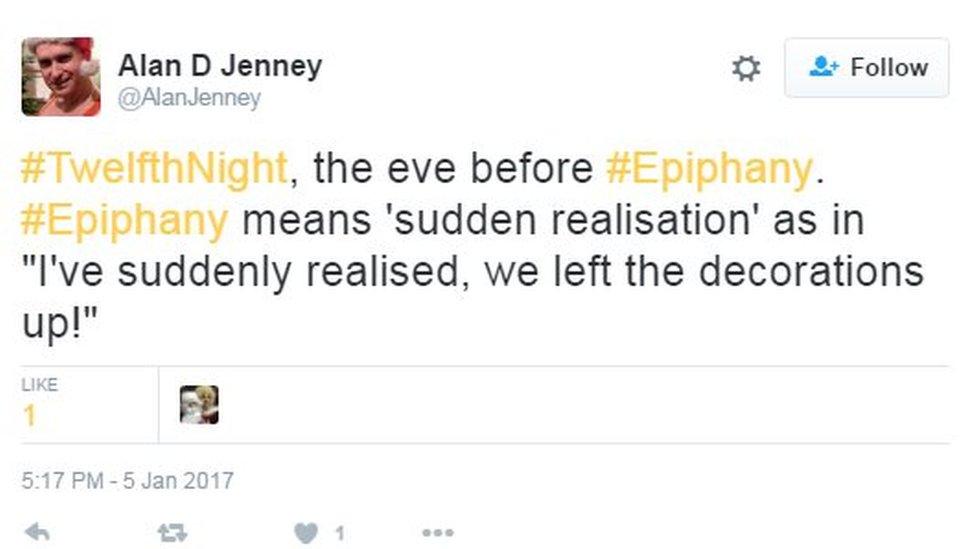
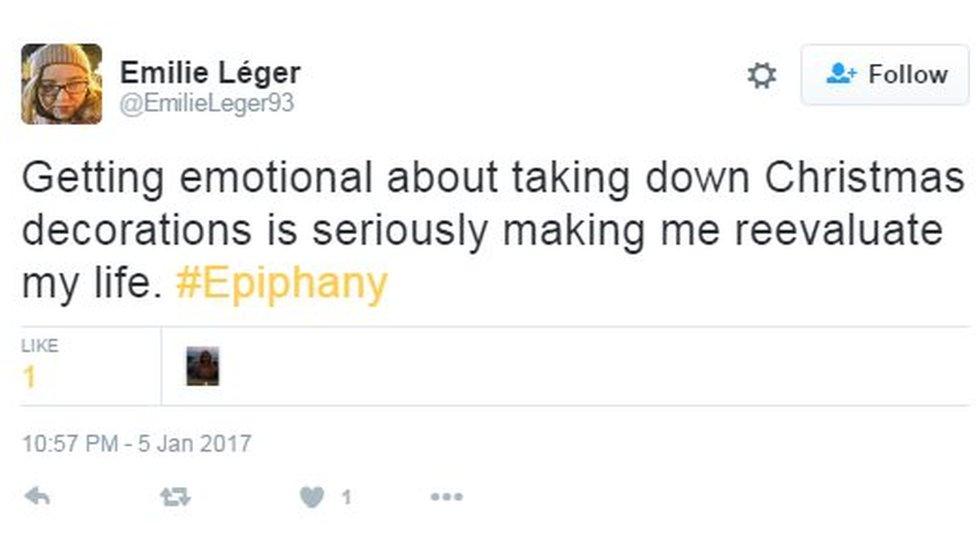
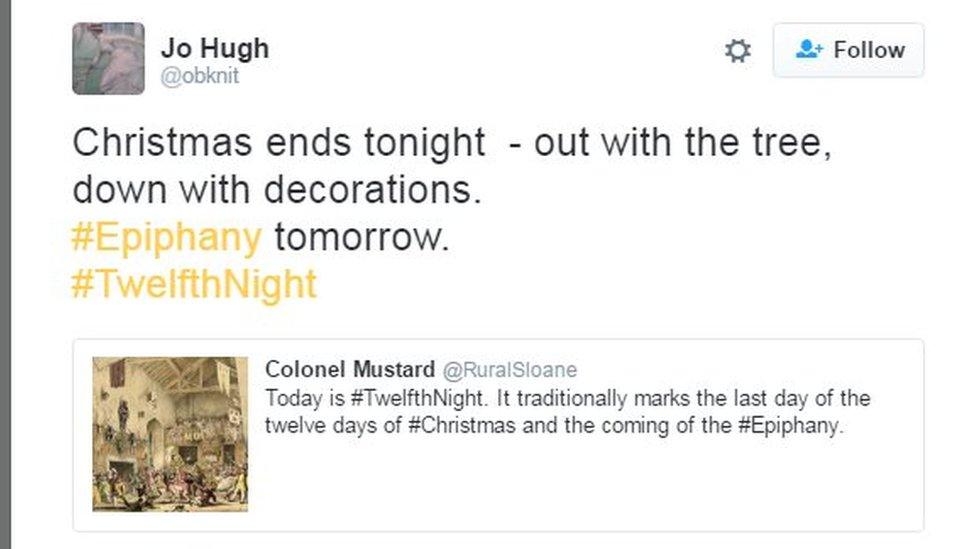
- Published19 January 2016

- Published20 November 2015
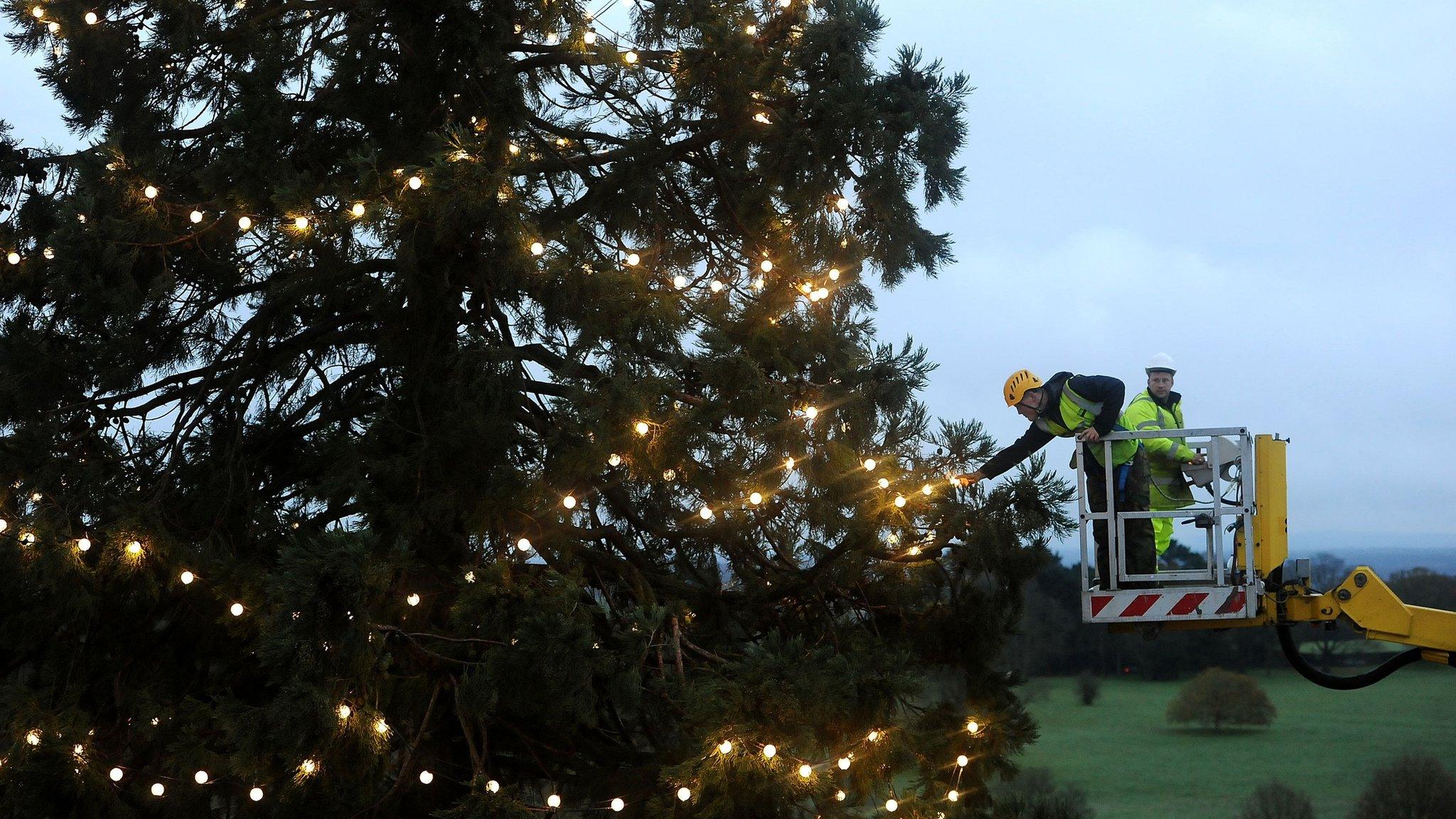
- Published18 December 2015
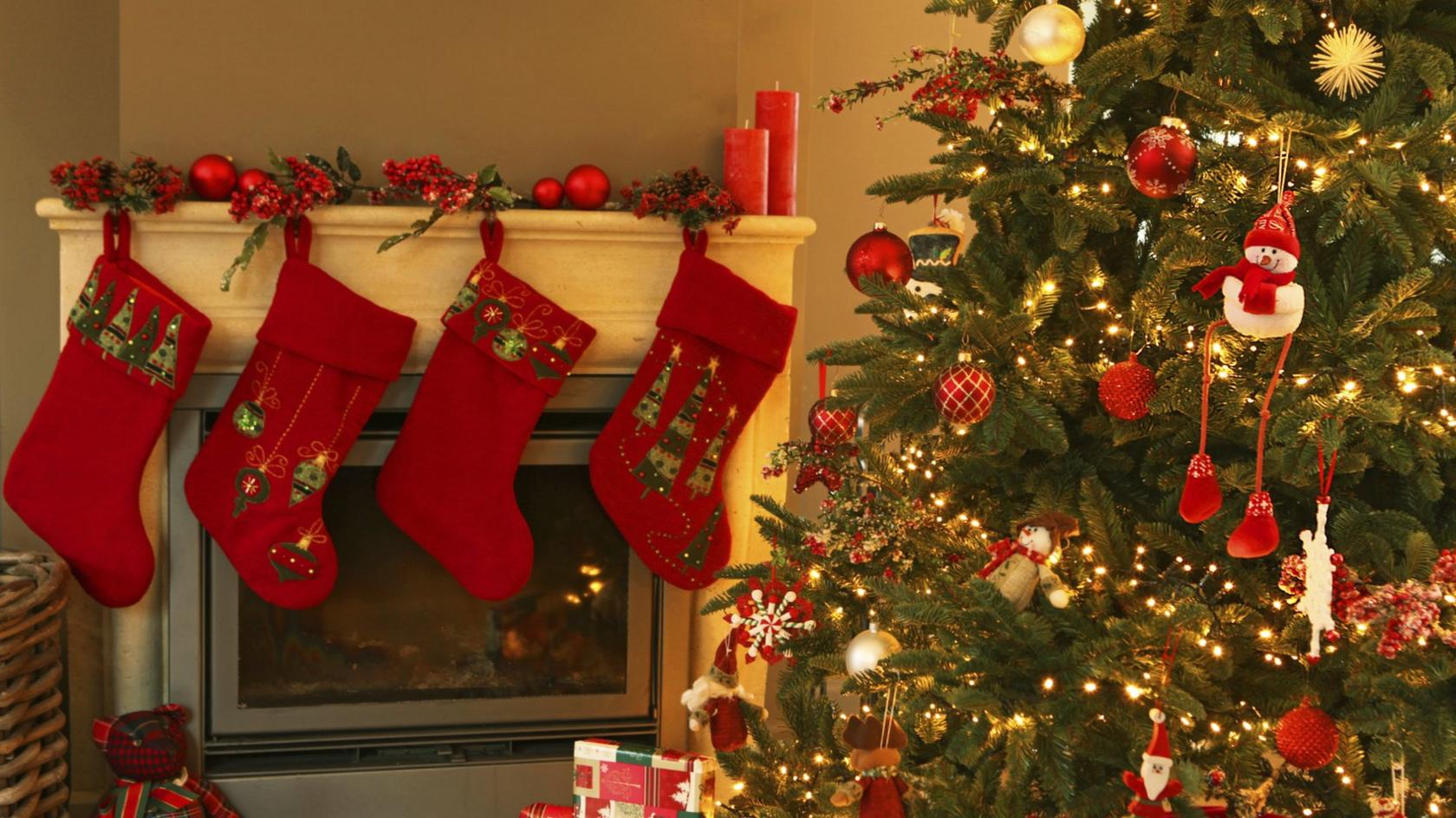
- Published23 December 2014